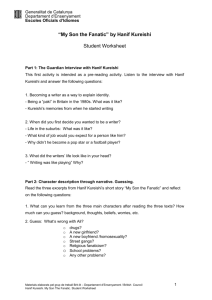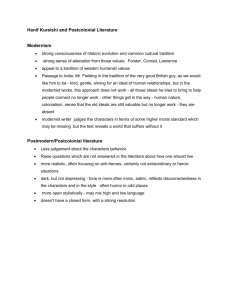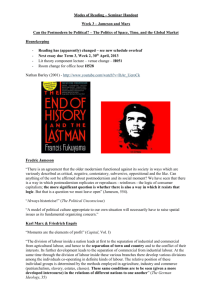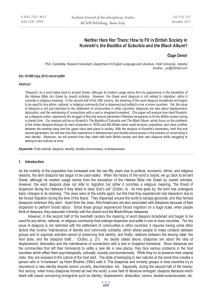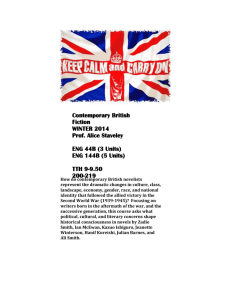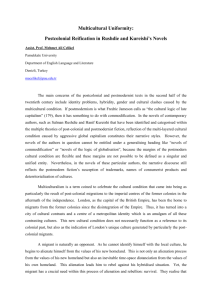Hanif Kureishi - The Buddha of Suburbia
advertisement
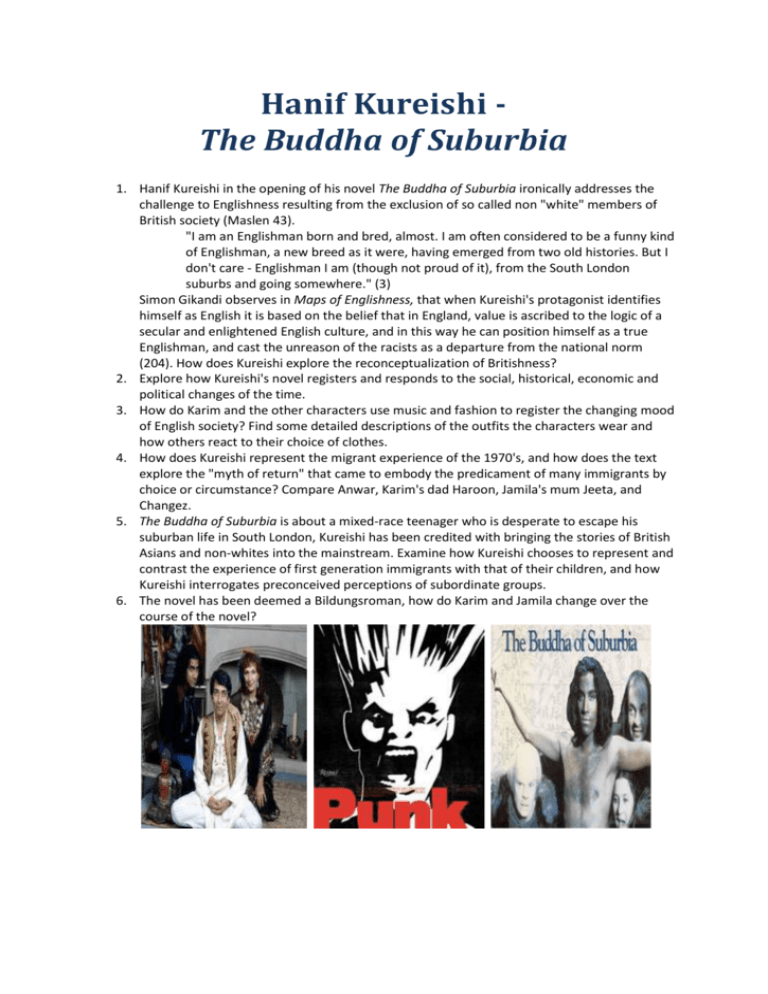
Hanif Kureishi The Buddha of Suburbia 1. Hanif Kureishi in the opening of his novel The Buddha of Suburbia ironically addresses the challenge to Englishness resulting from the exclusion of so called non "white" members of British society (Maslen 43). "I am an Englishman born and bred, almost. I am often considered to be a funny kind of Englishman, a new breed as it were, having emerged from two old histories. But I don't care - Englishman I am (though not proud of it), from the South London suburbs and going somewhere." (3) Simon Gikandi observes in Maps of Englishness, that when Kureishi's protagonist identifies himself as English it is based on the belief that in England, value is ascribed to the logic of a secular and enlightened English culture, and in this way he can position himself as a true Englishman, and cast the unreason of the racists as a departure from the national norm (204). How does Kureishi explore the reconceptualization of Britishness? 2. Explore how Kureishi's novel registers and responds to the social, historical, economic and political changes of the time. 3. How do Karim and the other characters use music and fashion to register the changing mood of English society? Find some detailed descriptions of the outfits the characters wear and how others react to their choice of clothes. 4. How does Kureishi represent the migrant experience of the 1970's, and how does the text explore the "myth of return" that came to embody the predicament of many immigrants by choice or circumstance? Compare Anwar, Karim's dad Haroon, Jamila's mum Jeeta, and Changez. 5. The Buddha of Suburbia is about a mixed-race teenager who is desperate to escape his suburban life in South London, Kureishi has been credited with bringing the stories of British Asians and non-whites into the mainstream. Examine how Kureishi chooses to represent and contrast the experience of first generation immigrants with that of their children, and how Kureishi interrogates preconceived perceptions of subordinate groups. 6. The novel has been deemed a Bildungsroman, how do Karim and Jamila change over the course of the novel? Starter: Not so dissimilar from Margaret Thatcher's governmental policies that branded postcolonial immigration responsible for the social fragmentation of British society, there is a renewed concern from the state that Britain is becoming a "community of communities". How can we compare the Britain Kureishi was writing from in the late 1980's, with the Britain he was writing about in the late 1970's, and the Britain we live in today?
